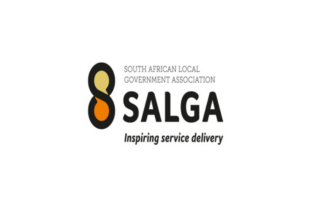High volumes of cars returning from their holiday destination were recorded coming into Pretoria. The Transport ministry has expressed guarded satisfaction with the apparent sharp decrease in road deaths. Photo: Masi Losi
The Easter long weekend may have seen the safest roads in South Africa’s history. Early reports show the annual carnage was down by almost two-thirds over the comparative period, with 109 deaths this year against the 296 people who lost their lives during the same period in 2011. “Yes it has been a success thus far. We are quite satisfied the message is coming through. Motorists are becoming increasingly aware,” said Transport Minister S’bu Ndebele, pulling over on the highway on the North Coast of KwaZulu-Natal to take the call. The minister is no stranger to road carnage, as his son was killed in a car accident 18 years ago. He stopped short on Monday of calling this year an outright success. “Buses and taxis are still leaving Moria.” “One taxi or bus crash changes the figures.” While the death toll figures are positive, there is little to celebrate for many families. On Monday thousands of cars and buses were streaming down the N1 from Polokwane after the annual Zion Christian Church pilgrimage to Moria, Sapa reported. At least 2500 vehicles per hour were recorded to be passing through N1 toll gates. Two men travelling along the route died and 11 other people were seriously injured on Sunday night when a minibus taxi overturned on the N1 near Hammanskraal in Gauteng. Earlier in the day a 13-year-old boy was killed when the car he and his parents were travelling in rolled on the N12 near Witbank. ER24 spokesman Derrick Banks said the driver had lost control of the car around 5pm. On Tuesday the Transport Department was to launch a new road safety-awareness campaign specifically targeted at pedestrians. Ndebele said: “Quite a high number of those who have died on the roads this week are pedestrians. As I drive down this highway, with all the cars doing 120km/h, I see people crossing.“The 9.7 million drivers know that road safety is their responsibility,” he said.
Ndebele attributed the road safety successes largely to the high visibility of traffic officers and police on national roads. “We had more than 10 000 traffic and police officers on the roads.” However, enforcement agencies had noted some negative trends during this year’s campaign. “Our only downside has been at the roadblocks, where we have seen an unacceptable number of people with no driving licences. “The fact that people see roadblocks and often abandon their cars and run on foot tells us they are either drunk or have no licences. “It is quite uncivilised for a country this developed to have this number (of deaths on the roads)… We have an advanced economy, it is not like people have just got hold of vehicles for the first time,” said Ndebele. “We are far behind Australia and England, and even compared to other African countries we have a problem,” he said. He said the message would continue to be driven home ahead of the April 27-May 1 long weekend. Netcare 911 spokesman Jeffrey Wicks attributed the marked decline in road accidents to “a change in attitude from drivers and the high-visibility law enforcement presence”. He noted that by 6.30pm on Monday night, Netcare 911 had attended to 268 vehicle crashes since Friday. “No accident is really an accident these days. Somebody is at fault,” Wicks pointed out. Source: The Star






